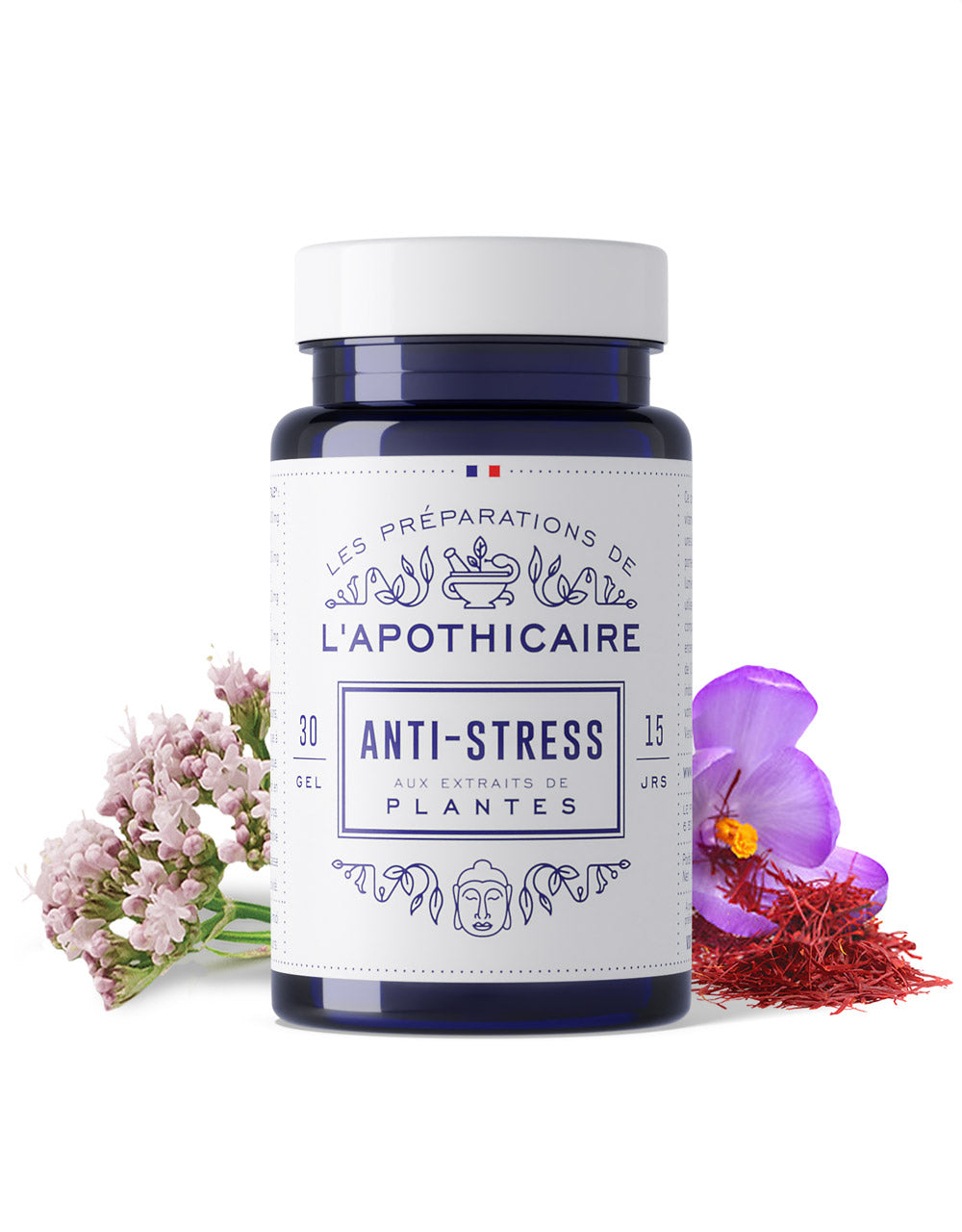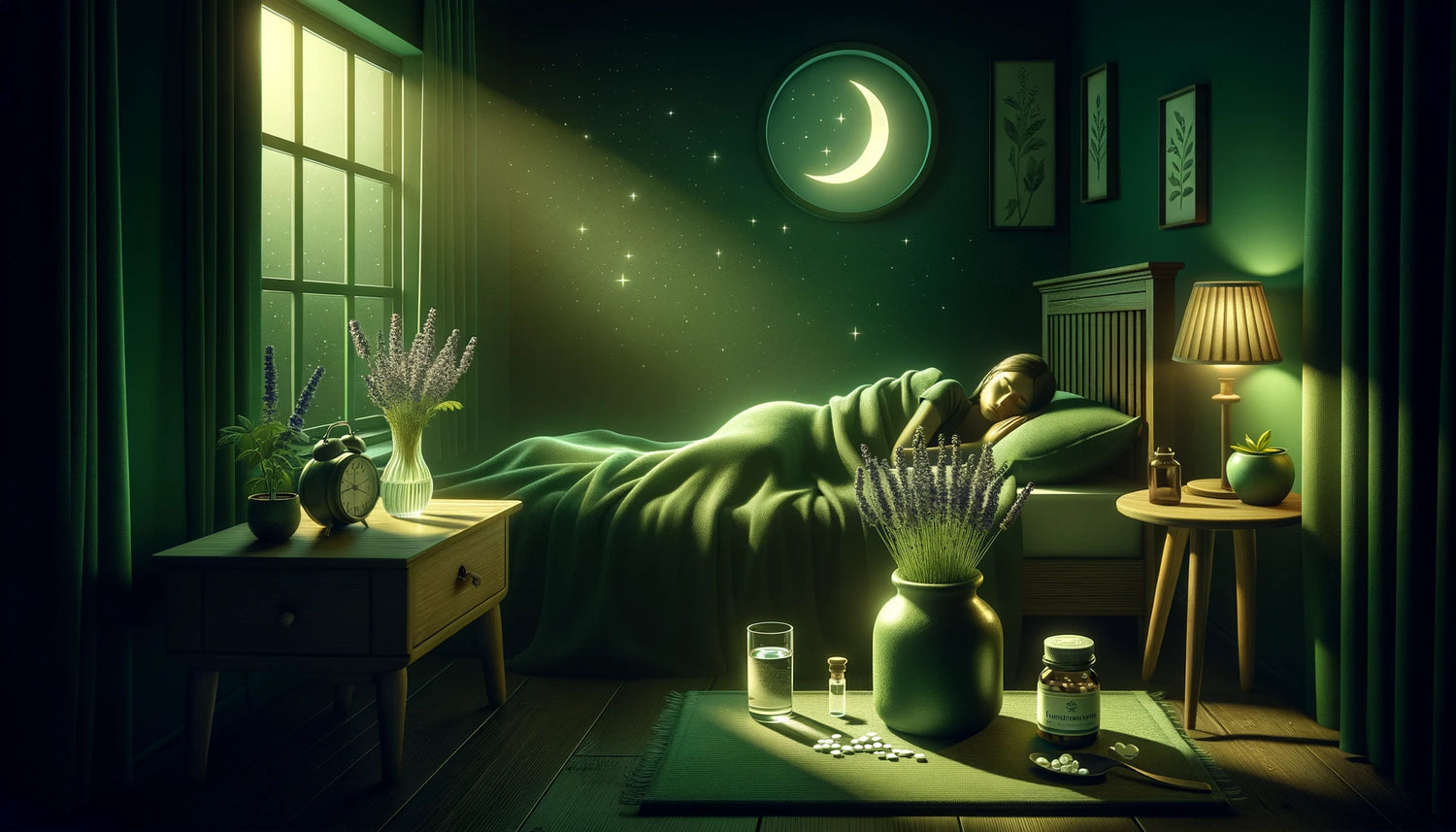If you suffer from sleep disorders, you are not alone. Insomnia, night waking or unrestful sleep can greatly affect your daily well-being. This article aims to enlighten you on a natural approach: homeopathy.
We will explore how this alternative medicine can offer a solution to your sleep difficulties based on the specific symptoms. You will not only learn the basics of how homeopathy works, but also how to spot the signs of a sleep disorder, and which homeopathic remedy may be right for you.
Finally, we will advise you when it is necessary to consult a sleep professional for a more in-depth evaluation.
- The principle of homeopathy
- How to spot sleep disorders?
- Homeopathy to help with sleep disorders
- Sleep disorders: when to consult a professional?
The principle of homeopathy

Homeopathy is an alternative medicine method based on two main principles:
- The principle of similarity : The basic idea is that "like cures like." This means that a substance that causes certain symptoms in a healthy person can, in very small amounts, cure those same symptoms in a sick person. For example, a substance that causes sneezing could be used to treat a cold.
- Extreme dilution : In homeopathy, active substances are diluted several times, sometimes to levels where it is almost impossible to find a molecule of the original substance. The idea is that the more diluted the substance is, the more effective it will be. This is called the "principle of dynamization". Homeopathy therefore often relies on infinitesimal doses of plants, minerals or other substances.
Homeopathy is generally used to combat sleep disorders . But how can you spot them?
How to spot sleep disorders?

Sleep disorders can be difficult to spot, but there are some signs that can help identify them:
Difficulty falling asleep
Sleep onset insomnia is characterized by difficulty falling asleep. Causes may include:
- Exposure to screens : Screens can inhibit the production of melatonin, the sleep hormone.
- Consumption of stimulants : caffeine, nicotine, and certain medications can prevent falling asleep.
- Stress or anxiety : The brain may be overactive before bed.

Soothe your stress-related stomach aches with our anti-stress capsules!
Our formula based on natural ingredients reduces fatigue and soothes tension
Discover the anti-stress capsules!Restless or unrestful sleep
Poor quality sleep can be caused by:
- Sleep apnea : breathing stops that disrupt sleep.
- Environmental conditions : uncomfortable mattress, improper temperature or noise.
Frequent night awakenings
Waking up several times during the night may be linked to:
- Stress and intrusive thoughts : the brain cannot relax.
- Need to urinate : excessive fluid consumption before bedtime.
- Hormonal disorders : certain hormonal imbalances promote nighttime awakenings.
If you notice that your problems are mainly related to stress, then you can turn to homeopathy to improve your sleep.

Homeopathy to help with sleep disorders
Homeopathy can be used to treat a variety of sleep disorders depending on the specific symptoms. Here is a comprehensive guide to the most commonly recommended remedies:
- Arsenicum album 15 CH : This remedy is indicated when insomnia is linked to intense anxiety, irrational fears (sometimes related to death) and nocturnal agitation. People wake up frequently during the night, often with a feeling of insecurity or panic.
- Aconitum napellus 15 CH : recommended for people who have difficulty falling asleep due to acute anxiety attacks, intense stress or sudden fears. This remedy is particularly useful when anxiety causes sudden nighttime awakenings, accompanied by palpitations or a feeling of anguish.
- Gelsemium sempervirens 15 CH : effective in cases of mental and physical fatigue, often due to worries or stressful events. It helps to soothe the mind and relax the body, thus facilitating falling asleep and improving the quality of sleep.
- Coffea cruda 15 CH : This remedy is ideal for people whose insomnia is due to mental overstimulation. When the mind is too active and incessant thoughts prevent falling asleep, Coffea cruda helps to calm mental activity.
- Nux vomica 15 CH : particularly recommended for people who have sleep disorders related to digestive problems or overwork. It is useful for those who wake up around 3 a.m., often with worrying thoughts or increased sensitivity to noise.
The granules of these remedies are usually taken before the evening meal and before bedtime, with a dosage that varies according to the specific needs of the person. It is advisable to consult a health professional or homeopath to personalize the treatment according to the symptoms and medical history of the patient. However, homeopathy has its limits. You must know when a professional is necessary to help you with your sleep disorder.

Sleep disorders: when to consult a professional?
Persistent insomnia
If you have difficulty falling asleep or staying asleep, and this lasts for more than three months, with an impact on your quality of life (daytime fatigue, irritability, difficulty concentrating), it is important to consult a professional. Chronic insomnia may be linked to psychological disorders (such as anxiety or depression) or underlying medical conditions.
Excessive daytime fatigue (hypersomnolence)
If you feel constantly tired during the day despite apparently getting enough sleep, this may be due to sleep disorders such as hypersomnia or conditions such as narcolepsy. Excessive daytime fatigue can impair your work performance or concentration and deserves evaluation by a specialist.
Restless Legs Syndrome (RLS)
RLS is characterized by an irrepressible urge to move the legs, often associated with uncomfortable sensations, especially at night. This can prevent falling asleep or cause frequent awakenings, leading to a lack of restorative sleep .
Homeopathy can be a valuable aid for those looking to improve their sleep naturally, especially when the problems are related to stress, anxiety or digestive problems. However, it is not suitable for all types of insomnia and does not always replace medical intervention.
Finally, homeopathy can be a good starting point for mild to moderate problems, but medical follow-up remains essential for more complex disorders.







